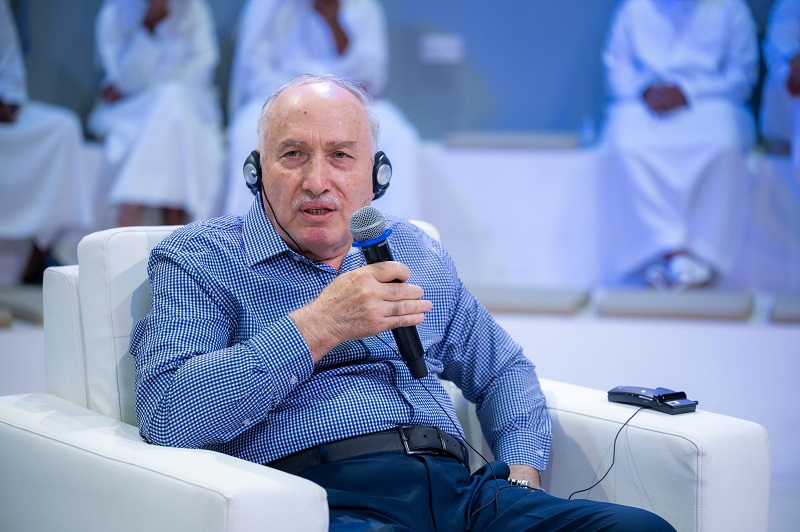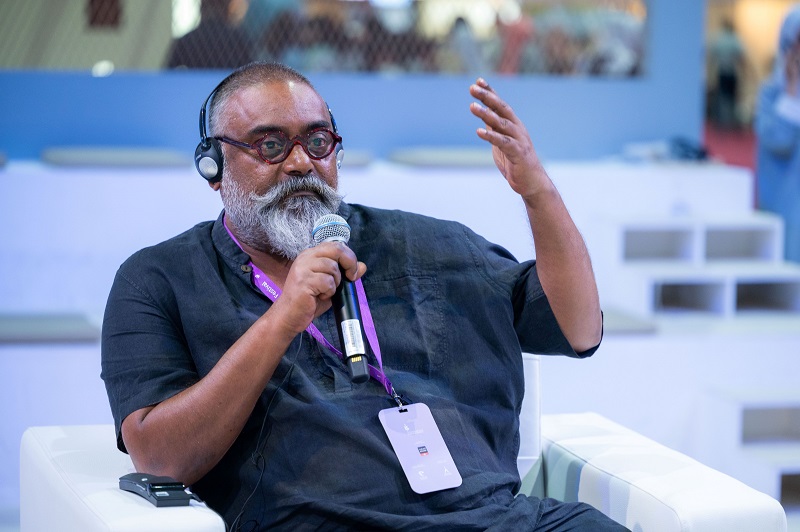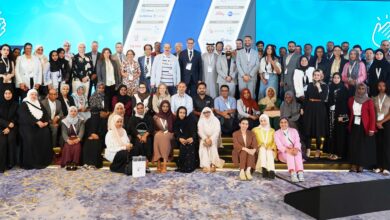Panel featuring educator, writer and theatre professional weight in on its practical
and character-shaping benefits at the Sharjah Children’s Reading Festival
UAE educator Sharifa Musa, Syrian children’s author Dr Haitham Al Khawaja and Indian theatre director Roysten Abel, have offered key insights into implementing theatre studies in educational curricula at the Sharjah Children’s Reading Festival (SCRF 2023), asserting that doing so will shape the character of children and create more opportunities in adulthood.

“Theatre definitely helps prepare and shape children’s characters,” said Musa. “It’s key to keep this in mind when designing teaching methodologies. Educators need to focus not so much on making actors out of children, as to build their character, help them discover themselves and the world around them, develop their abilities and express themselves well. In addition, theatre is also a soft power in culture and arts. It teaches them social capabilities. We’ve seen children feel more included and become more productive after being part of school plays.”

Dr Al Khawaja reinforced the fact that “theatre is a huge part of a well-rounded education system. Theatre is not merely about producing artists but about taking the educational journey forward. It is an important contributor to civilisation. Theatre is the father of all arts, and it demands from the child cooperation, gumption, language skills and so many others. It is the new medium of education that we need to embrace: learning through play.”

Abel noted that the arts teach empathy to kids, giving the example of Harvard university which started an arts programme after the atomic bomb attacks on Hiroshima and Nagasaki. “In a world that is increasingly polarised, the most important reason for theatre education is empathy: developing consideration for fellow human beings. Theatre encompasses so many other arts – music, painting etc. It is a holistic development platform for youngsters.”
Since prehistoric times, our social interactions have been theatre, said Abel, pointing out that early humans sat around a fire and entertained themselves with play acting and singing. “One of the first things that young children who have learnt to speak and interact with is pretend-play. Through theatre, we encourage kids to be themselves. And their creativity blossoms once they are comfortable with themselves,” he said.
Packaging theatre studies in an interesting way, in the age of digital and social media, was also key to attracting students’ attention and keeping them engaged, noted the panellists. “Modern theatre is a combination of live entertainment and digital media and elements. You can get kids to do theatre and create showreels out of it, by tapping into their love for devices and using it to enrich their experiences.”





